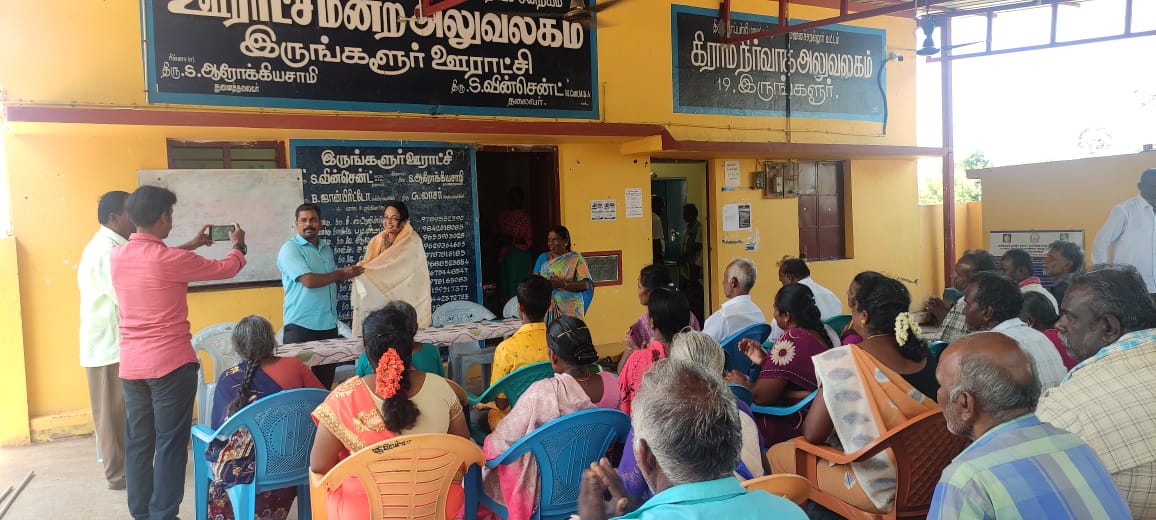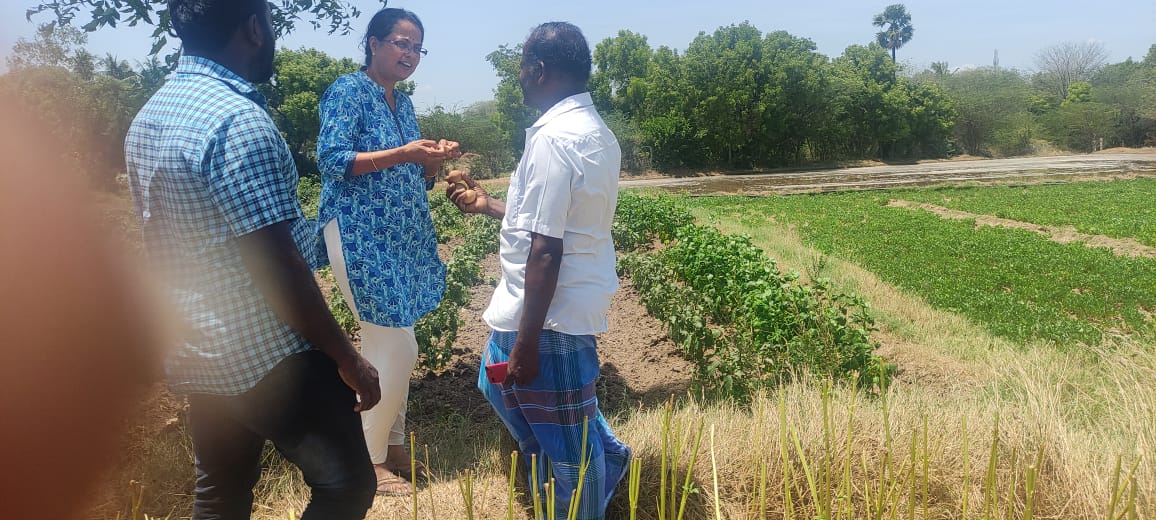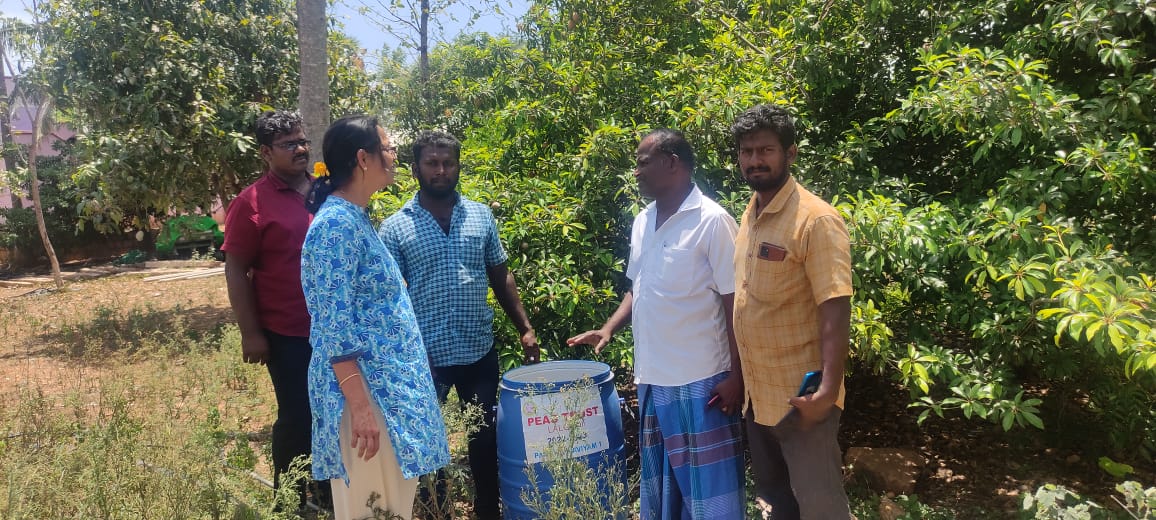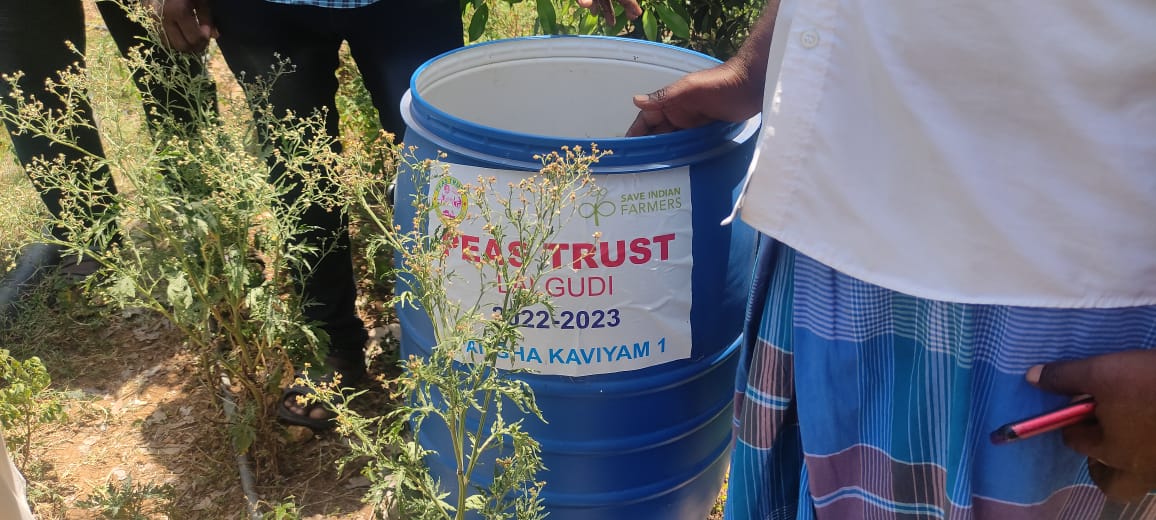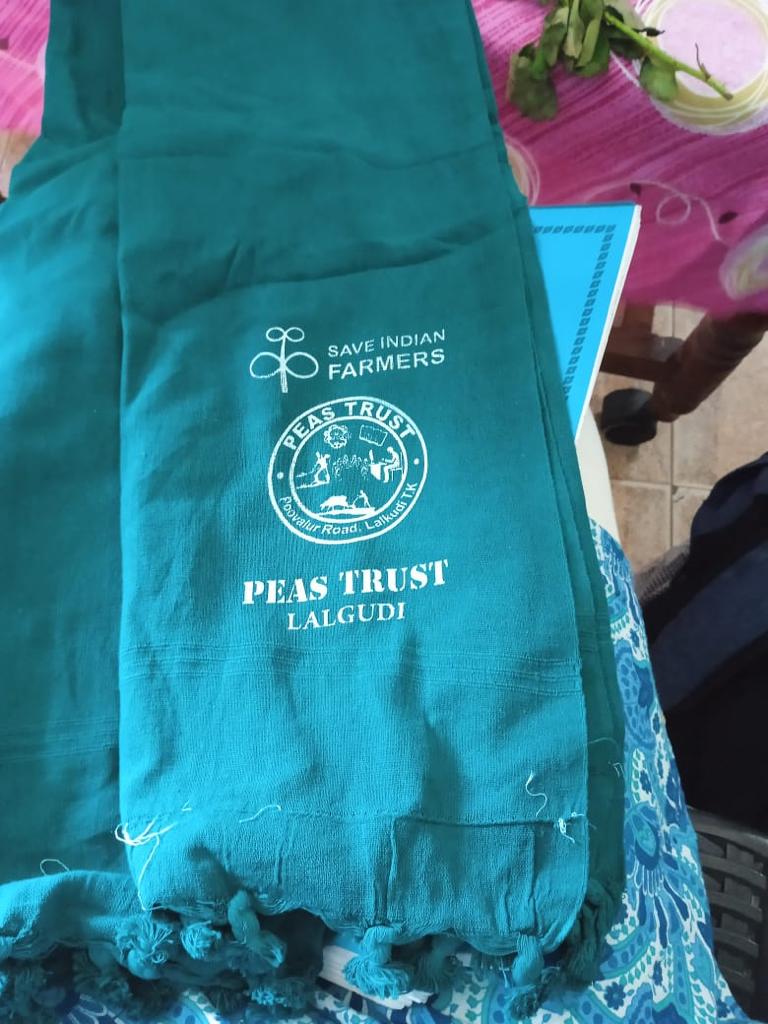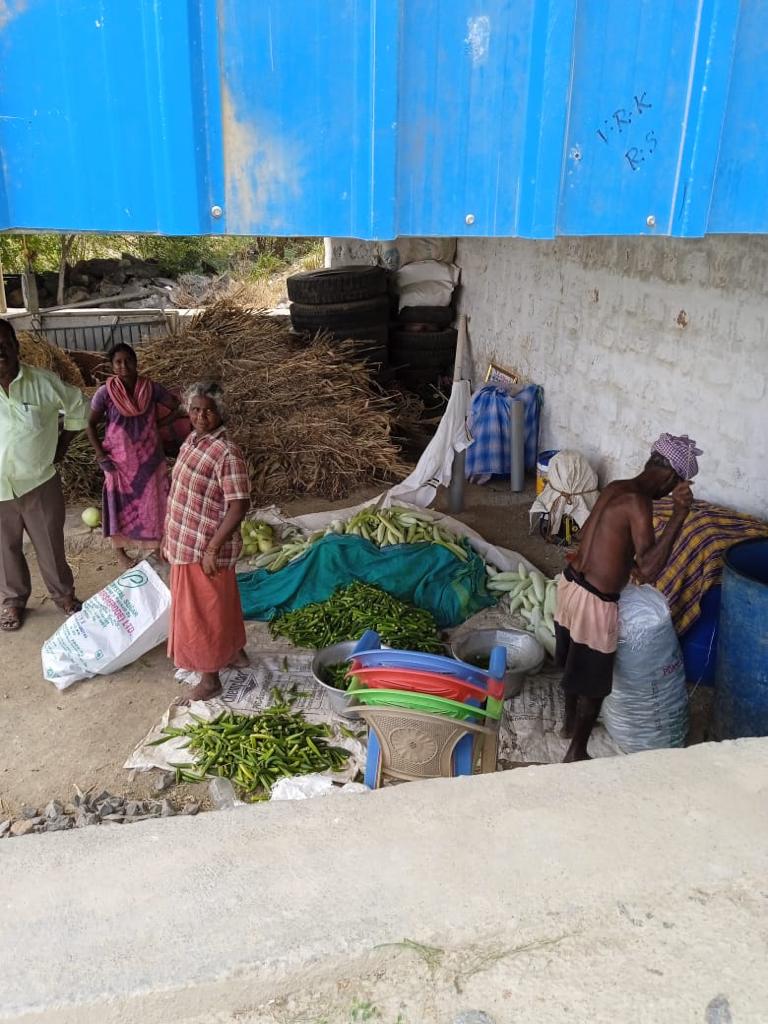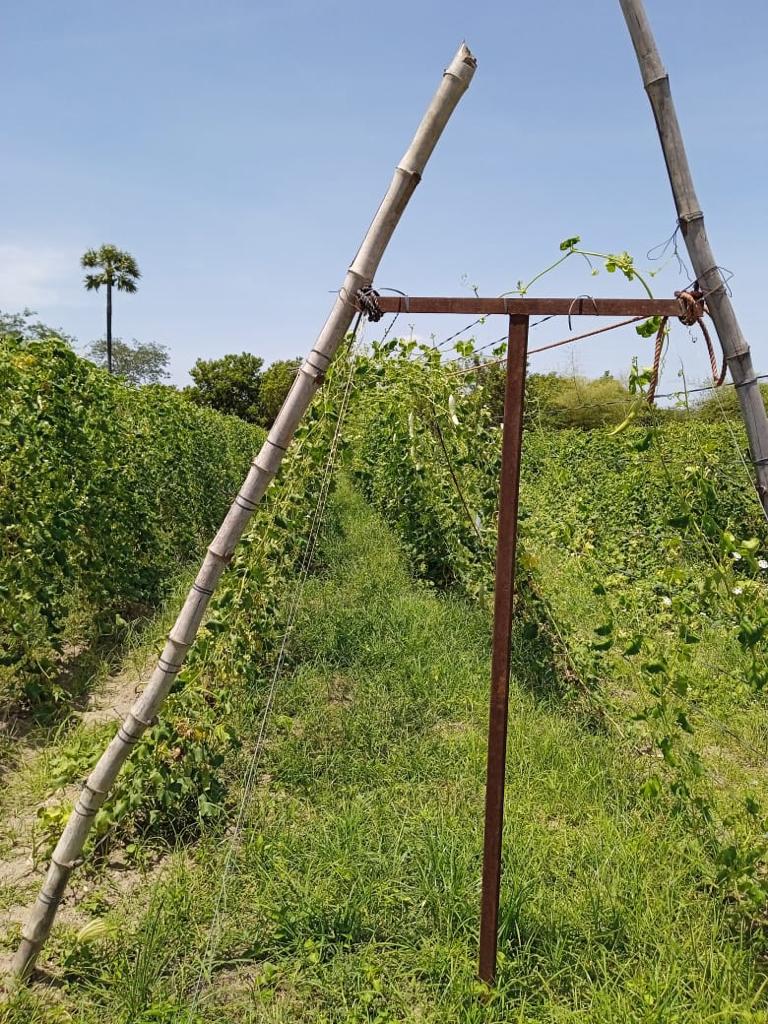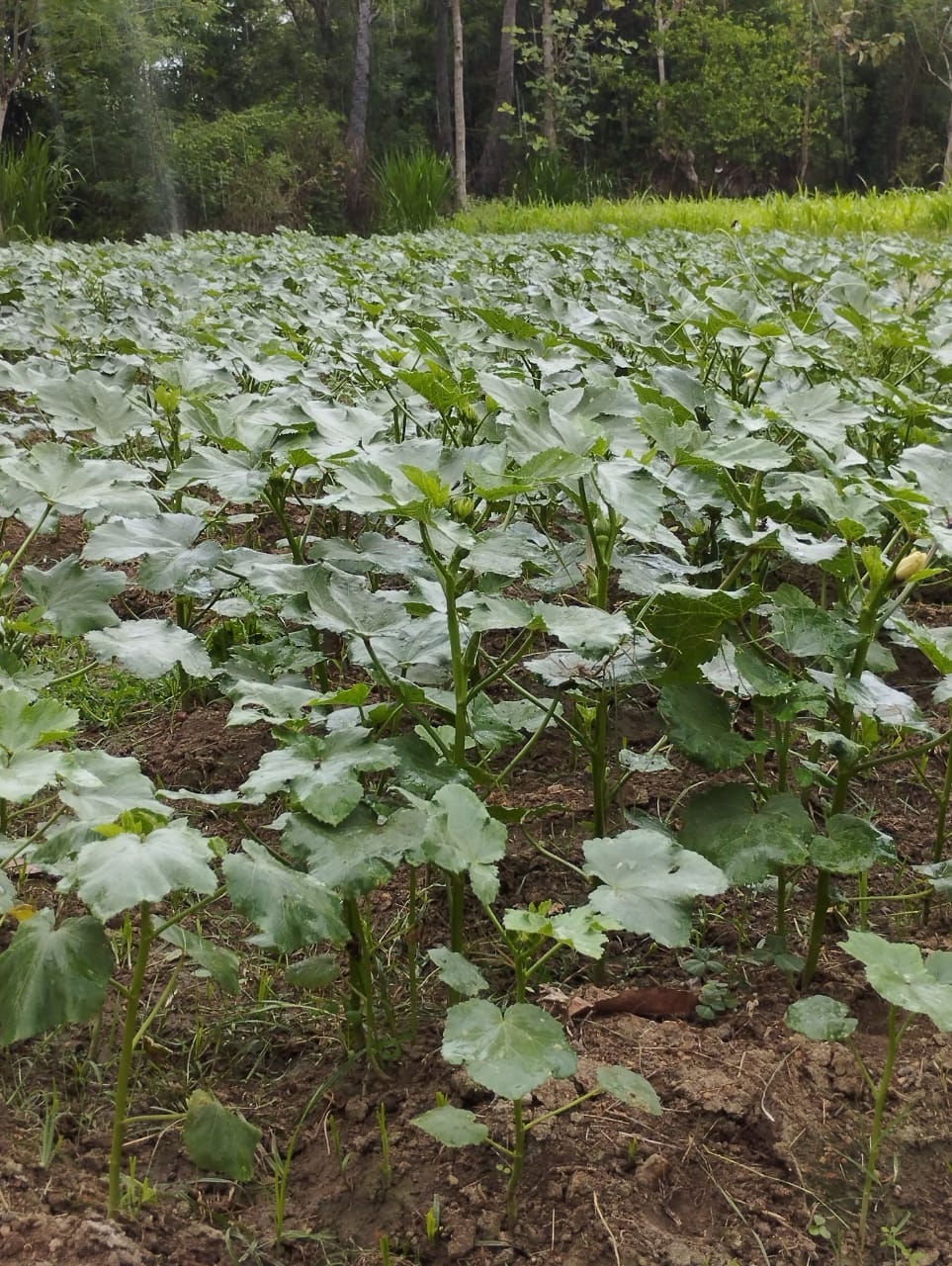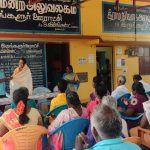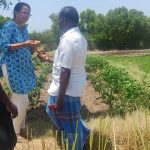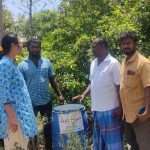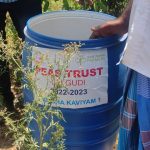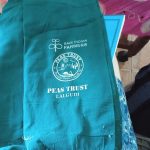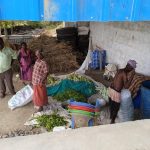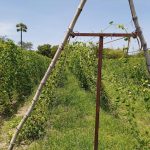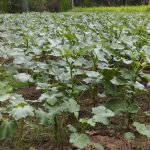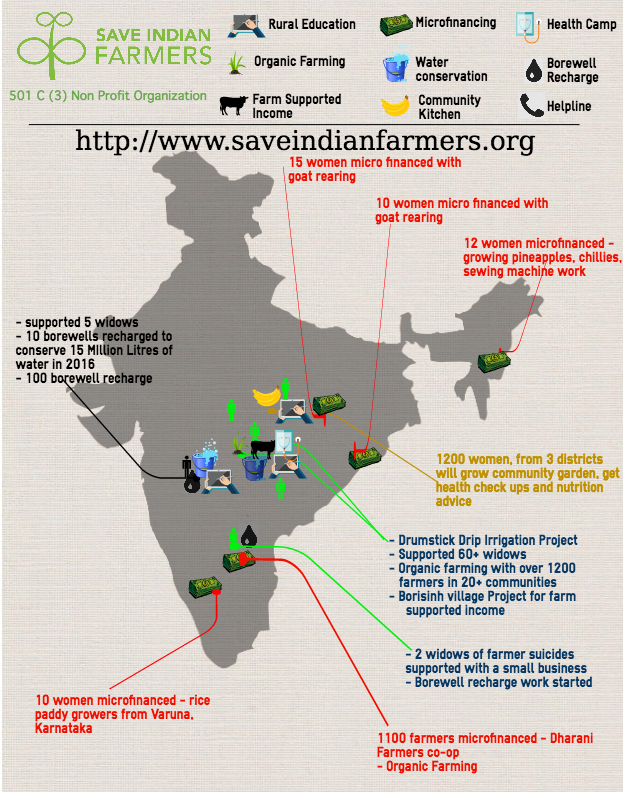Project Director Aruna Rajsekhar reporting her day-long visit to the SIF project site with our NGO partner PEAS Trust.
Date of the trip: June 25-26, 2023.
Project objective: Education & training of farmers in Lalgudi Taluk, Tiruchirappalli district, Tamil Nadu on Sustainable Organic Farming methods. This is the third year of the project and about 120 farmers are beneficiaries.
Sustainable Horticulture – Trichirapalli, Tamil Nadu(Third Year)
I traveled to Lalgudi from Chennai by train. It was about 5 hours by an Express train. Our NGO partner – Mr Kanagavel and his wife, met me at the station at night and took me to a lodge that seemed newly built. It was adjacent to the local court. Mr. Kanagavel (Mr. K) and his wife made me comfortable and helped me settle in. We decided that we would set out the following day at 9am. We were going to visit as many farmer-fields as possible. I wanted to talk to our beneficiaries directly and see some of the sustainability practices in action. In addition, Mr. K arranged for a meeting of all/most of the farmers in our program from 2 villages (Irungulur and Purathakudi) at the local Panchayat office-so I can meet most of them in one setting.
After a brief visit to Mr. K’s house, we proceeded to the local Panchayat Office. About 40-50 farmers were gathered there, waiting for us. Mr. K had previously informed the farmers about my upcoming visit. They were expecting to see me. He started the session with a brief introduction of Save Indian Farmers- about who we are and our objectives and the intention of my trip. They bestowed respect upon me in the local traditional way with shawls etc.
Later, he asked me to say a few words. Addressing the farmers, I told them how I was very happy to be there that day and how far I had traveled to interact directly with them. SIF is an organization that is mainly run by volunteers whose only aim is to help farmers in India without expecting anything in return. We run projects in many areas in the country and have seen farmers improve their lives by learning new tools and techniques. I also thanked Mr. K for being a great partner in this project, without whose effort none of this is possible.
At this point, several farmers from the audience stood up and shared personal stories. I heard the following:
- For the first time he/she was taken to a college to learn from experts and was taught about Pancha Kavya and organic farming.
- Students at the local agriculture college learned from the farmers too. There was mutual sharing of knowledge and experience.
- Using organic fertilizers has not only helped their crops but also their own personal health. Many farmers were previously suffering from health issues arising from constant exposure to spraying chemicals.
- Mr. K arranges for agri experts to visit the farmers regularly in their fields and answers questions if any.
- They are learning about seed saving for future use. This saves them money by reducing investment costs.
- The local Panchayat leader is very vested in the betterment of the community and is trusted to bring people together for knowledge sharing. This is helping our project as well.
After this we visited about 6 farms. Some of the things I learnt:
- Some farmers are college educated. With lack of employment opportunities these young guys are back in the fields. They are more open to learning new methods- they read up stuff on the internet.
- Using seed trays for germination is a big success. This ensures that seeds that germinate are healthy and strong, they are not over-watered. These seedlings survive and thrive when transplanted to the ground.
- Mr. K is enabling farmers to build side hustles related to the main farming to help bring additional income. For eg., mix Pancha Kavya or fish liquid and sell surplus stock to others for a price. Farmers admitted that these mixtures are better than what is sold in the stores. Farmers from other villages buy this from them now.
- Same with seed saving and storage. Farmers save money by saving and storing heirloom seeds from their own fields instead of buying from stores.
- Farmers are taught how to add new crops or grow multiple crops together (combine) by bringing in local experts with experience.
- One farmer told me that before he started organic farming, there were hardly any earthworms in the soil. After he switched, he can see how rich the soil has become. He is convinced this is the right way to preserve the soil.
- Farmers teach each other how to improve irrigation methods or use some small machines for clearing old crops or about plant diseases they see.
- Farmers are taught to build compost pits in their fields which they weren’t doing previously.
- Farmers are so pleased with the quality of the vegetables they grow that they are not afraid to feed this to their families (including babies).
- Mr. K also teaches them how to use “bad, old” vegetables by drying them for seeds or selling them for pickling or frying.
- Even though it is not tied to this project, I must mention that Mr. K and his wife engage with farmer families in other ways such as skills(tailoring) training for farmer wives. This makes a holistic approach for improving farmers’ lives. People trust Mr. K.
- I tasted produce from several fields – chickoo, amla, mango, lady’s finger, groundnuts, moong, coconut and jasmine flowers and they were amazing.
- Mr. K prints paraphernalia (sometimes with his own money) such as stickers, towels etc with SIF logo to promote the project and remind the farmers about our service. This has spread the word and farmers from other villages are eager to learn sustainable methods.
I spent about 8 hours on a very hot day touring the fields. Mr. k and his wife accompanied me to each one. The overall impression I got was that these farmers are truly benefitting from SIF’s project and the participants are convinced that while they still have ways to go, they are doing better in life now than before. They are convinced that this is the way forward even though it may take a few harvest seasons to see the benefit. Their next goal is to market the produce and sell in cities and outside their own village.
Mr. K and his wife have a special social standing in these villages. Farmers respect him and heed his advice.
While at Lalgudi, I also got an opportunity to visit the other ventures undertaken by our NGO partner PEAS. I feel the SIF project benefits from some of the other unrelated work done by PEAS. Big thanks to Mr. Kanagavel without whose effort, experience, and perseverance I wouldn’t have heard the testimonies from the farmers that I did at Lalgudi. It was truly an amazing and overwhelming experience. I am sharing some photographs and video clips taken during my visit.
I do believe SIF is changing the lives of farmers in Lalgudi in a positive way !

